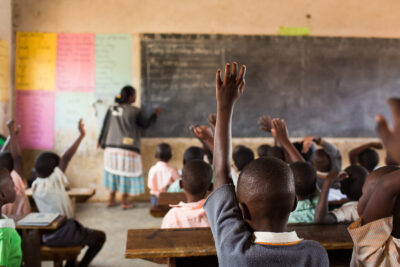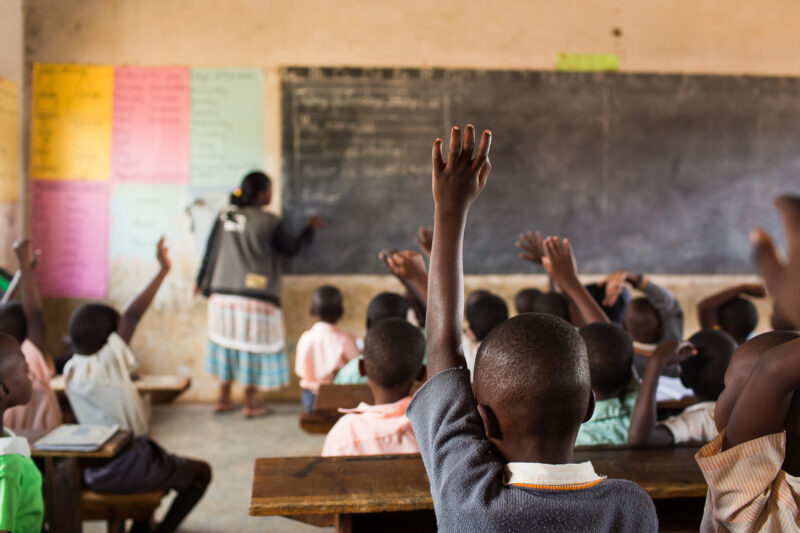In a Report adopted today, 13 December 2023, the European Parliament highlights the opportunities of engaging with local faith-based organisations in the educational sector and calls for stronger partnerships with these stakeholders. COMECE welcomes the Parliament’s prioritisation of education and training in EU’s development cooperation and appreciates its recognition of the valuable role of faith-based actors in this regard.

Students in Africa. (Photo: Shutterstock/Boxed Lunch Productions)
In the Report “EU development cooperation to enhance access to education and training in developing countries”, drafted by MEP György Hölvényi, the European Parliament recognises that local faith-based actors, alongside other civil society organisations, play an important role in mitigating the gaps where States fall short in ensuring access to quality education for all.
Commenting on today’s vote, COMECE General Secretary, Fr. Manuel Barrios Prieto, said: “We congratulate the European Parliament for highlighting the crucial role of quality universal education and training in fostering integral human development, reducing poverty and combatting forced migration and inequalities. We appreciate also the recognition of local faith-based actors’ contribution to these objectives. As inclusive and complementary to national education systems, these actors are in a unique position to reach remote and vulnerable communities”.
The EP Report points out the need to step up the share of the EU development policy budget allocated to education and vocational training, ensuring appropriate and efficient governance and monitoring.
In view of increasing the efficiency of EU’s assistance, the Parliament calls on the European institutions to also enhance their cooperation and partnerships with local faith-based stakeholders.
Referring to Article 17 of the Treaty on the Functioning of the European Union (TFEU), the Report particularly encourages EU Delegations to engage more systematically in dialogue with these local faith actors and to involve them in the implementation of EU funding for access to quality and inclusive education.
The Catholic Church is one of the largest non-State providers of education in the world. Its role is especially important in Africa. Estimates suggest that in 2020, Catholic academic institutions served nearly 68 million children globally, out of which 27 million in Africa.

